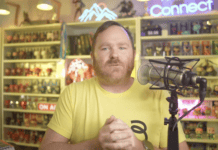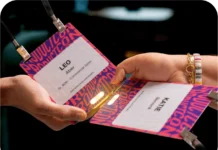
Event technology can make or break an event—especially if it fails.
If your latest event technology fell short of your expectations, it’s important to debrief, learn from those failures and strategize new ways that technology can be more beneficial and engaging at your next event. After all, tech gurus such as Steve Jobs and Bill Gates achieved greatness largely because of their failures. Here are four expert tips on how to defeat event tech failures.
Ask for Attendee Cooperation like Steve Jobs
Back in 2010, Steve Jobs faced a rather embarrassing mishap when the Apple iPhone 4 technology failed during an unveiling of the product. Instead of panicking that the technology wasn’t working, Jobs addressed the failure and asked cooperation from the more than 500 journalists in attendance to turn off their Wi-Fi connections, which were slowing down the demo. When event tech is failing, it’s always better to just address it and advise attendees on how they can help.
Create Technology with a Higher Purpose like Mark Zuckerberg
Zuckerberg has always said that Facebook was originally created, not as a company, but as a social mission to make the world more open and connected. This same philosophy should be added to your event technology. When event technology doesn’t add anything to the event, meeting planners need to evaluate its purpose and come up with strategies to create technology that truly serves a higher purpose—benefiting both planners and attendees.
Jack Dorsey Emphasizes Building Something that Works
At the Money20/20 Europe conference in Copenhagen last month, Dorsey gave a large audience a simple piece of advice: Don’t spend too long dreaming about an idea, and start building it instead. The CEO of both Twitter and Square said that he didn’t even start speaking with investors about the Square credit card processor until he had an actual device that could take money for businesses off a credit card. Similarly, planners should focus more time on having a trial-and-error period before launching new technology at an event. It’s better to launch something late than launch something that doesn’t deliver what you promised.
Don’t Let Success Distract You, Says Bill Gates
Bill Gates has been quoted saying, “Success is a lousy teacher. It seduces smart people into thinking they can’t lose.” Too often meeting planners see that even successful technology can become a problem if it distracts too much from the event. If you create an event technology so popular that attendees are using it more than paying attention to the speakers or educational sessions, you have a problem. Sometimes, less really is more.










